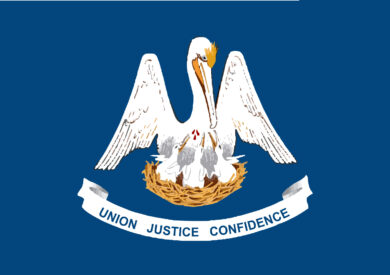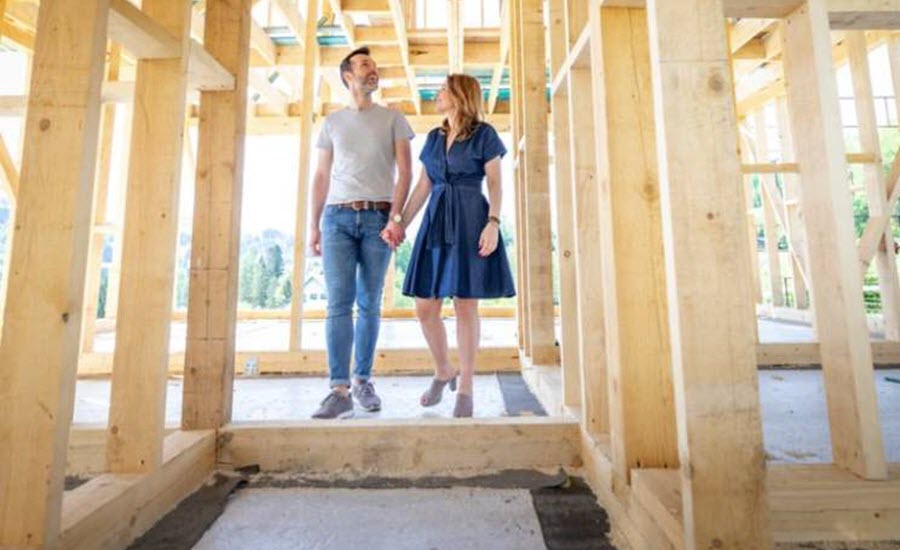
 Popular Cities For Lending in Louisiana
Popular Cities For Lending in Louisiana
Kenner
Lafayette
Lake Charles
Marrero
Metairie
Monroe
New Orleans
Prairieville
Shreveport
Slidell
In the Louisiana real estate market, grabbing properties before your competition is essential for making the best deals. Although real estate investors sometimes go the traditional route and seek bank loans, the process is anything but speedy.
When time is of the essence, waiting for the lengthy process of getting approval is not an option for most investors. Louisiana hard money lenders specialize in providing hard money loans which provide quick funds to investors. These loans are for a non owner occupied property or in some cases for business purpose loans.
Louisiana Hard Money Lender FAQ’S
Below are some of the most frequently asked questions we get regarding hard money loans and lenders in Louisiana.
What Do Louisiana Hard Money Lenders Specialize in?
Louisiana hard money lenders specialize in providing short-term, creative financing for real estate investors. If you seek a conventional lender to purchase an investment property, your loan request will be based on the property’s value and your assets. Your credit score, job, and finances will be scrutinized intensely. Hard money lenders base their final loan decisions on the after-repair value. The ARV represents the potential value of a property after all repairs have been accomplished.
What are the Benefits of Louisiana Hard Money Loans?
Louisiana hard money loans offer advantages that traditional banks cannot. Lenders like Acamnet Financial offer a higher level of flexibility than banks. When qualifying for this type of loan, lenders do not delve too deeply into the finances of real estate investors. In most cases, simply present the property and your plans, which saves you the hassle of gathering countless financial documents.
Do Louisiana Hard Money Lenders Look at my Credit Score?
One of the greatest benefits of working with Louisiana hard money lenders is the lack of credit score requirements. One of the first things a bank does is check your credit score. You can get approved for a hard money loan in Louisiana even if you have bad credit or poor credit, bankruptcies, and foreclosures in the past. Louisiana Hard money lenders primarily care about the property you are purchasing.
What is the Interest Rate & Points for Hard Money Loans in Louisiana?
Interest rates for hard money loans in Louisiana are typically higher than traditional bank loans (conventional loans) because of the greater risk lenders must take on when approving loans. When searching for a hard money lender near me in Louisiana, you will find average interest rate is between 8%-15%. You should also be aware that lenders sometimes charge points that are meant to offset their administrative costs. Each point represents 1% of the total loan amount. The average points lenders charge is between 1 to 3. Some lenders may charge up to 10 points. These points are due upfront or at closing, depending on the lender.
What Should I Look for in a Louisiana Hard Money Lender?
There are many benefits to working with a Louisiana hard money lender. You just need to make sure you are working with the right lender. You can rely on Acamnet Financial Group when you need us most. We offer reliability, consistency, experience, and support. As a real estate investor, you know the importance of grabbing the best property deals when they become available.
How can Hard Money Lenders in Louisiana Help Me?
Whether you are new to real estate and real estate projects or an old pro, you know having the capital to purchase real estate is essential. Without funds, you will miss out on real estate transactions. When you partner with hard money lenders in Louisiana, you will quickly get the money you need without jumping through the hoops of traditional bank lenders.
How do I get a Hard Money Loan in Louisiana?
When you want a hard money loan in Louisiana, begin by preparing the property information. Location, size, purchase price, after repair value, repair costs, etc. In most cases, the financing will be based on these numbers. Then, apply for a hard money loan in Louisiana using this information and supply some financial information. Then, an appraisal will be ordered to assess the loan-to-value ratio, which will influence the loan amount.
How do I Refinance a Louisiana Hard Money Loan?
Refinance a Louisiana hard money loan will involve moving from a high interest, short term loan to a longer term, usually lower interest rate loan. Typically a conventional type of loan. When refinancing a Louisiana hard money loan you will find it will have a more stringent set of guidelines. You will need to have sufficient credit and income qualifications. As the lending landscaping and regulations constantly change, you want to consult a knowledgeable conventional loan expert.

Current Real Estate Trends In Louisiana (2024)
The real estate market in Louisiana is shaped by several factors, including mortgage rates, insurance issues, inventory, and affordability.
Mortgage rates remain steady, with 30-year fixed rate at 6.48% and 15-year fixed rate at 5.84%.
Insurance costs have gone up, providing limited options for buyers and potentially influencing their decisions. To maintain market stability and provide coverage for homeowners, a solid insurance market is needed.
Inventory has decreased while home prices have dropped by 3.8% year-over-year, with fewer homes sold.
Despite this, economists anticipate a slowdown instead of a crash in the housing market, as Louisiana has advantages other states don’t.
Addressing insurance issues and balancing affordability are key in the recovery and growth of the Louisiana housing market.
Market Overview
The Louisiana real estate market has seen a decrease in median sale price of 3.8% year over year. Additionally, there has been a 29.5% reduction in the number of homes sold, indicating a potential downturn in the housing sector.
This decline in both prices and sales poses a challenging situation for sellers. With prices going down and fewer properties being bought, sellers are facing difficulties in finding buyers and getting the desired price for their properties.
In light of these market conditions, it becomes crucial for both buyers and sellers to carefully consider the state of affairs. They need to adjust their strategies accordingly to navigate the challenges posed by the current market conditions.
Taking into account the market overview is essential for making informed decisions and maximizing opportunities in the Louisiana real estate market.
Challenges in the State
The people of Louisiana have been facing difficulties in getting adequate insurance coverage. Several insurance carriers have left the state or gone bankrupt, causing the prices to soar and reducing the options available to customers.
This has had a severe impact on the cost of properties, making them less accessible to individuals. Moreover, the uncertainty of the insurance industry during storms and calamities has created a risk for the entire housing sector.
Necessary reforms must be taken to guarantee a stable and cost-effective insurance industry.
Housing Market Predictions
Experts in the housing market anticipate a deceleration in the coming future, though not a total collapse, bringing forth tentative optimism among prospective buyers and sellers.
The Louisiana real estate market is confronted with difficulties, but a few factors point to an optimistic outlook:
- Mortgage rates becoming balanced after the latest bank crisis, instilling faith in buyers.
- Low supply and high demand increasing prices.
- Strict credit score requirements for borrowers.
These aspects promote the overall soundness of the market and indicate the possibility of continuing growth.
Sources
https://www.ktbs.com/news/current-state-of-the-louisiana-housing-market/article_f0cb232e-cf47-11ed-97bc-8ba4189e0945.html
https://www.homelight.com/states/la/housing-market
https://www.houzeo.com/blog/louisiana-real-estate-market/

All About Louisiana
Louisiana, situated in the Deep South and South Central regions of the United States, is a state known for its unique geography, shaped by the Mississippi River. Its distinctive political subdivisions, called parishes, set it apart from other states.
The state’s diverse natural environment encompasses coastal marshes, swamps, elevated areas with tallgrass prairies, and pine forests.
Louisiana has a rich Native American heritage and is home to various indigenous tribes.
The state’s complex history involves French and Spanish colonization before becoming part of the United States through the Louisiana Purchase.
Louisiana’s cultural diversity is influenced by its French, Spanish, Native American, and other cultural heritages.
Facing socioeconomic challenges, the state ranks low in health, education, and development.
Named after King Louis XIV of France, Louisiana has a long pre-colonial history, including the Mound Builders culture and the settlement of French Acadians, or Cajuns, in the southern region.
This article provides an objective and informative overview of Louisiana’s geography, political subdivisions, natural environment, indigenous tribes, and historical background.
Geography
Louisiana is located in the Deep South and South Central regions of the United States, bordered by Texas, Arkansas, Mississippi, and the Gulf of Mexico, with the Mississippi River restricting a large part of its eastern boundary.
Covering approximately 51,840 square miles, Louisiana ranks 20th in land area among the 50 U.S. states. The state has a population of roughly 4.6 million residents.
Louisiana is unique in that it is the only state with political subdivisions called parishes, similar to counties. It is one of two states not divided into counties, the other being Alaska.
The capital of Louisiana is Baton Rouge, and its largest city is New Orleans, with a population of around 383,000 people.
Louisiana’s traditional abbreviation is ‘La.’
Political Subdivisions
The unique political subdivisions of this state, known as parishes, distinguish it from other states in the United States. Louisiana is the only state in the country that does not have counties, with the exception of Alaska.
The parishes in Louisiana function similarly to counties in other states, with their local governments and officials. There are 64 parishes in Louisiana, each with its own set of boundaries and jurisdictions.
The largest parish by population is East Baton Rouge Parish, home to the state capital of Baton Rouge. This unique political division system reflects the state’s French and Spanish colonial heritage.
Moving on to the natural environment of Louisiana, the state is characterized by its vast coastal marshes and swamps, as well as diverse ecosystems in the northern regions.
Natural Environment
Covering over half of the state’s land area, the diverse natural environment of Louisiana includes expansive coastal marshes, vibrant swamps, and elevated regions boasting tallgrass prairies and pine forests.
The lands of Louisiana were shaped by sediment carried by the Mississippi River, resulting in extensive coastal marshes and swamps. These wetland areas are home to a rich southern biota, with various bird species and fish thriving in these habitats.
In contrast, the elevated regions in the north feature different ecosystems, such as tallgrass prairies and pine forests. Forests cover more than half of Louisiana, contributing to its overall biodiversity.
This unique natural environment played a significant role in attracting indigenous tribes to the area.
Indigenous Tribes
Indigenous tribes in Louisiana were drawn to the region due to its strategic location and rich biodiversity. The state’s location at the confluence of the Mississippi River system and the Gulf of Mexico provided access to transportation and trade routes, making it an attractive area for settlement.
Additionally, Louisiana’s diverse southern biota, including various bird species and fish, provided a reliable food source for indigenous communities. The state’s lands, formed from sediment carried by the Mississippi River, resulted in vast coastal marsh and swamp areas, which were rich in resources.
This combination of a strategic location and abundant natural resources significantly attracted indigenous tribes to Louisiana.
Transitioning to the subsequent section about ‘historical background,’ the indigenous tribes’ presence in the region set the stage for the arrival of European explorers and colonization efforts.
Historical Background
Having a rich and complex history, Louisiana’s historical background is marked by European exploration, colonization, and the influences of diverse cultural groups.
The French claimed Louisiana in 1682, followed by a period of Spanish rule. In 1801, the territory was returned to France and sold to the United States as part of the Louisiana Purchase in 1803.
Louisiana became the 18th state to join the Union in 1812. The state experienced a significant influx of settlers from the eastern U.S. and immigrants from other countries.
Louisiana’s cultural diversity is reflected in its unique French heritage and influences from Spanish, Native American, and other cultures. This historical background has shaped the state’s identity, language, and cultural traditions.


 Popular Cities For Lending in Louisiana
Popular Cities For Lending in Louisiana